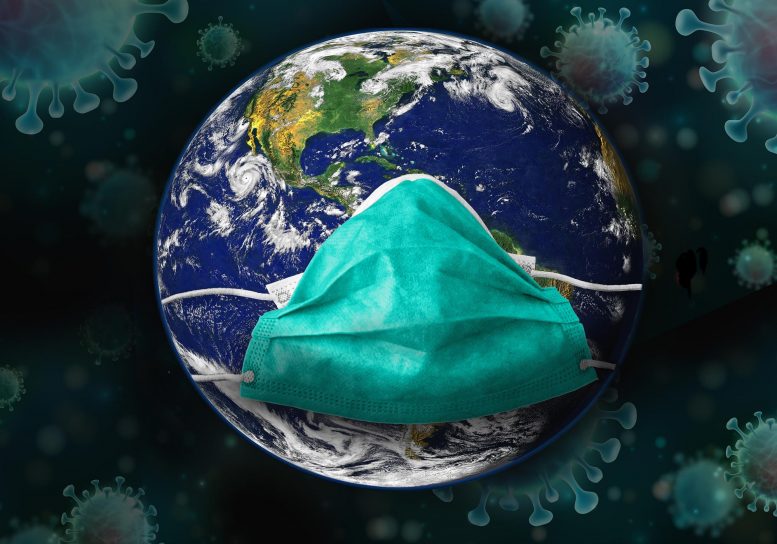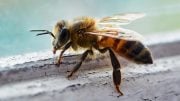
Classical herd immunity against SARS-CoV-2 is unlikely due to the virus’s characteristics and current societal dynamics.
Achieving classical herd immunity against SARS-CoV-2, the virus that causes COVID-19, may not be attainable, according to a new perspective published in The Journal of Infectious Diseases. However, widespread use of currently available public health interventions to prevent and control COVID-19 will enable resumption of most activities of daily life with minimal disruption, the authors note. Anthony S. Fauci, M.D., director of the National Institute of Allergy and Infectious Diseases (NIAID), part of NIH, David M. Morens, M.D., senior scientific advisor to the NIAID director, and Gregory K. Folkers, chief of staff to the NIAID director, authored the perspective.
The general concept of herd immunity implies that transmission of an infectious agent can be blunted, except for sporadic outbreaks, because a certain proportion of the population is already protected through vaccination or prior infection. The authors explain how the scientific understanding of herd immunity and its applications to various diseases have evolved over time. High levels of herd immunity have enabled the United States to largely control polio and measles—two diseases caused by viruses that have not undergone significant evolution. However, the authors note, the benefits of achieving herd immunity thresholds have been less successful with respiratory viruses such as influenza, which continually mutate.
Dr. Fauci and his colleagues write that achieving classical herd immunity against SARS-CoV-2 is unlikely, due to a combination of factors that include features of the virus as well as current societal dynamics. These include the virus’ ability to continually mutate to new variants; asymptomatic virus transmission, which complicates public health control strategies; the inability of prior infection or vaccination to provide durable protection against reinfection; suboptimal vaccination coverage; and adherence to non-pharmacologic interventions.
However, the authors note, controlling COVID-19 without major disruptions to society is now achievable because of widespread background immunity via prior infection or vaccination, booster shots, antiviral drugs, monoclonal antibody therapies, and widely available diagnostic tests. Research to develop pan-coronavirus vaccines, which could protect against multiple coronaviruses or at least multiple SARS-CoV-2 variants, remains crucial.
Living with COVID is best considered not as reaching a numerical threshold of immunity, but as optimizing population protection without prohibitive restrictions on our daily lives, the authors conclude.
Reference: “The Concept of Classical Herd Immunity May Not Apply to COVID-19” by David M Morens, Gregory K Folkers and Anthony S Fauci, 31 March 2022, The Journal of Infectious Diseases.
DOI: 10.1093/infdis/jiac109
About the National Institute of Allergy and Infectious Diseases (NIAID): NIAID conducts and supports research—at NIH, throughout the United States, and worldwide—to study the causes of infectious and immune-mediated diseases, and to develop better means of preventing, diagnosing, and treating these illnesses.
About the National Institutes of Health (NIH): NIH, the nation’s medical research agency, includes 27 Institutes and Centers and is a component of the U.S. Department of Health and Human Services. NIH is the primary federal agency conducting and supporting basic, clinical, and translational medical research, and is investigating the causes, treatments, and cures for both common and rare diseases.









This article explains why classical herd immunity may not be necessary, but it doesn’t include one important factor in the virus.
All the coronaviruses and all their variants have different protein spikes, with Delta and Omicron having spikes that are more efficient at getting around the vaccines. But the real problem is in the virus itself, not its protein shell, and why the most dangerous (MERS, SARS, and Covid-19) are so infectious. My independent research has found multiple one-in-a-million nucleotide sequence matches between all the coronaviruses and the human genome. Those sequences are the same as some of the loops of human tRNA. Using those loops and their amino acid code matches, viruses may be able to fool the nucleus membrane in cells to allow the virus to enter and associate with the human DNA, creating more opportunities for further infection. Our immune system may be compromised and may no longer be able to stop the virus and other diseases from attacking organs throughout the body. Vaccines that attack the virus protein shells while ignoring their contents will always let some of the virus into our cells from the Darwin effect, but recognizing these loops suggests a possible approach to completely successful coronavirus vaccines. Only the infection process is considered in my work, not the innate virulence of the virus. Specifics on this can be found by searching YouTube for “Coronavirus – Using Your DNA Against You”